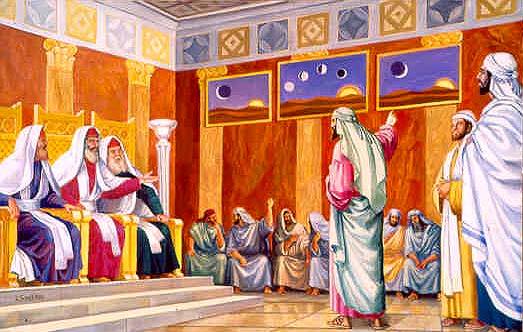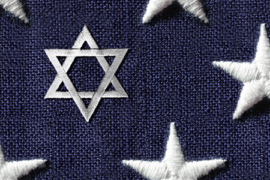Parhsat Mishpatim deals primarily with the civil laws that govern our communal interactions. The fact that these decrees are given at this specific point – directly after the Hebrew tribes receive the Ten Commandments – shows a clear distinction between Western religions and Israel’s Torah.
In truth, the Jewish people has no such concept as “religion” in the formal sense of the term, as we reject the notion of anything existing outside of HaShem. Israel’s earthly mission necessitates elevating every aspect of Creation by infusing it with Divine meaning and raising it to its highest potential in our world.
Western civilization generally views religious observance as something limited to an individual’s private sphere of belief, ritual and prayer. This approach constructs a false division between private service to G-D and the way a person treats his fellow man.
The Torah recognizes no such distinction as all areas of life are intertwined and kedusha derives from ethical business dealings and proper conduct on the battlefield no less than from piety in matters of Torah study and tefillah.
Our sages teach that a Jew wishing to live a virtuous life should be scrupulous in matters of civil law (Baba Kamma 30a). From this we derive that the seat of the Sanhedrin should be on the Temple Mount, for both the Temple and our high court are meant to be expressions of HaShem’s Divine Ideal.
A judge who rules properly is considered a partner in Creation while one who judges corruptly is called a destroyer of G-D’s world. It is therefore appropriate that immediately after carrying Am Yisrael through the recognition of HaShem’s power, the miracles at the Sea of Reeds and the revelation at Sinai, the Torah commences with precepts that seem almost mundane in character but are in fact no less expressions of HaShem’s Ideal than is the first of the Ten Commandments proclaiming His existence and sovereignty over all.
In the tenth chapter of Melakhim I, the Queen of Sheba visits the kingdom of Shlomo. At the commencement of her visit, she expresses great skepticism regarding international rumors of the Hebrew monarch’s wisdom. But after observing the way in which the society functions, the queen is astounded. She immediately begins to praise Shlomo’s wisdom and HaShem’s supremacy, recognizing kedusha not merely in how Israelis celebrate Shabbat or bring korbanot to the Temple, but also in the day-to-day function of the entire realm. She expresses immense admiration for every aspect of the Hebrew Kingdom – even down to the details of how the servants dress – discovering that Israel’s Torah encompasses all of national and even international existence, including the most seemingly mundane spheres of life.
Israel existing as a “kingdom of priests and a holy nation” (Sh’mot 19:6) necessitates the sanctification of every aspect of individual, interpersonal and national life so as to give tangible earthly expression to all of our Torah’s lofty spiritual values. While any gentile can be a righteous and holy individual, only Israel has the potential to be a holy nation, expressing kedusha in every facet of human behavior.
Only through creating an entire civilization in Eretz Yisrael that radiates the values of Israel’s Torah can we succeed in fulfilling our collective mission of bringing Creation to its ultimate goal of total perfection and universal awareness of HaShem’s all encompassing Oneness.





